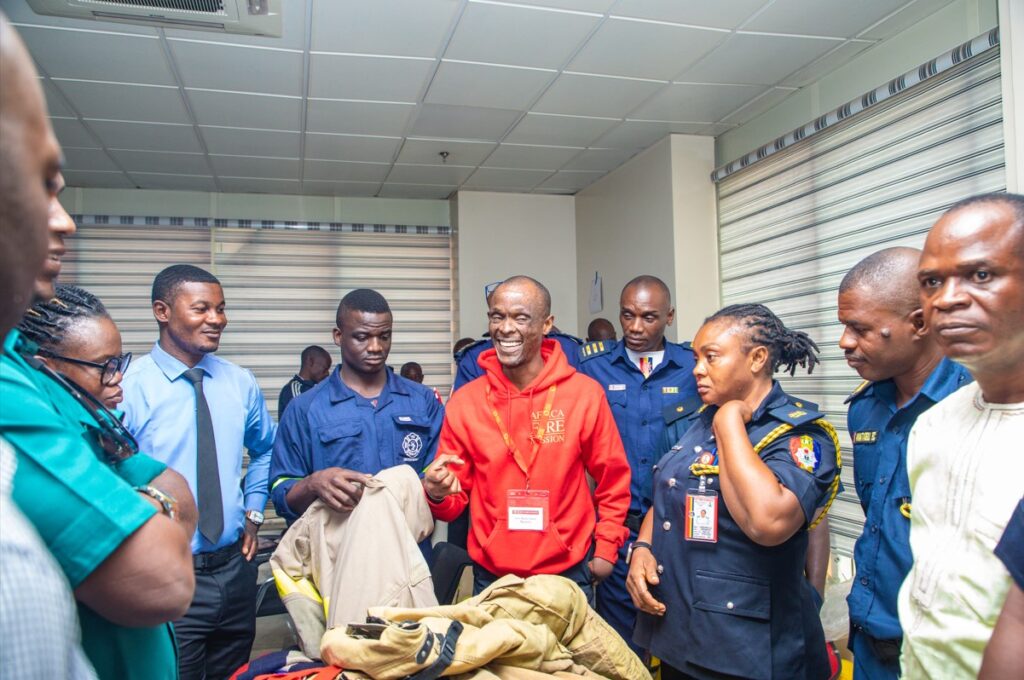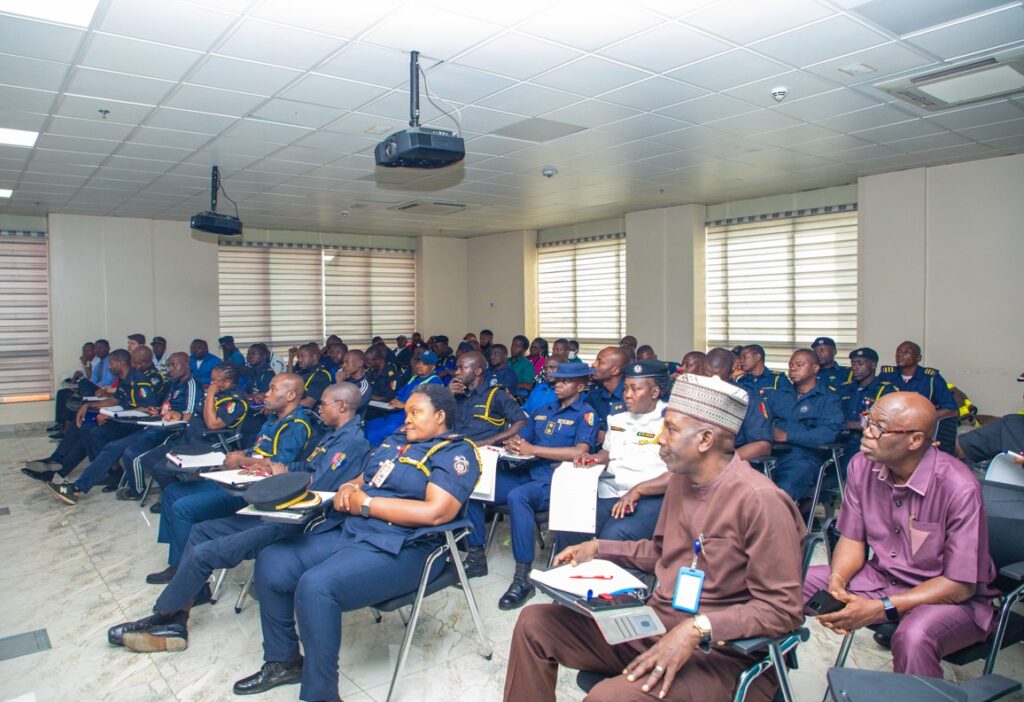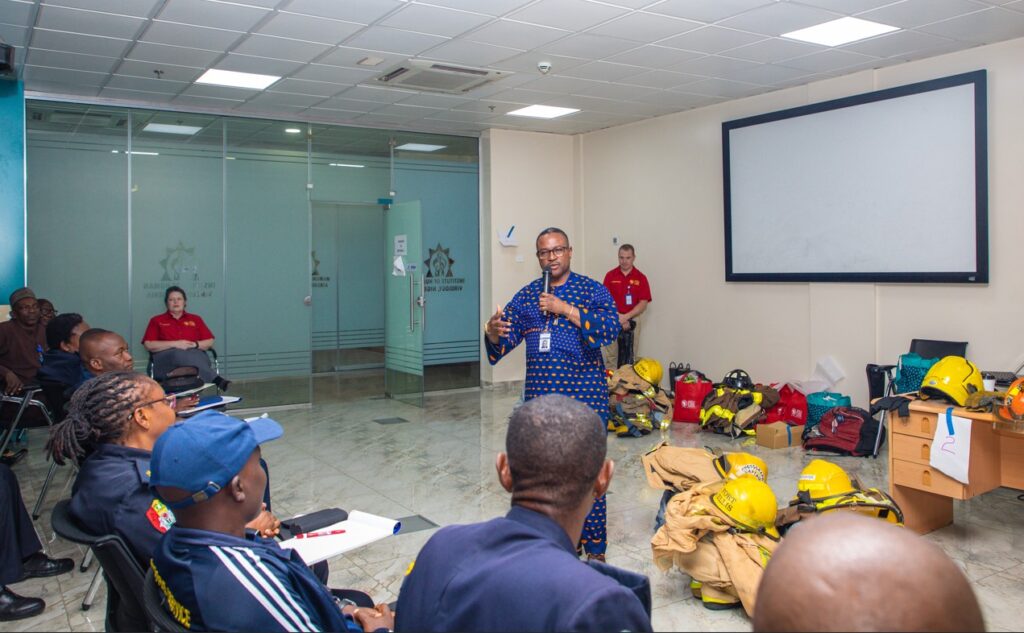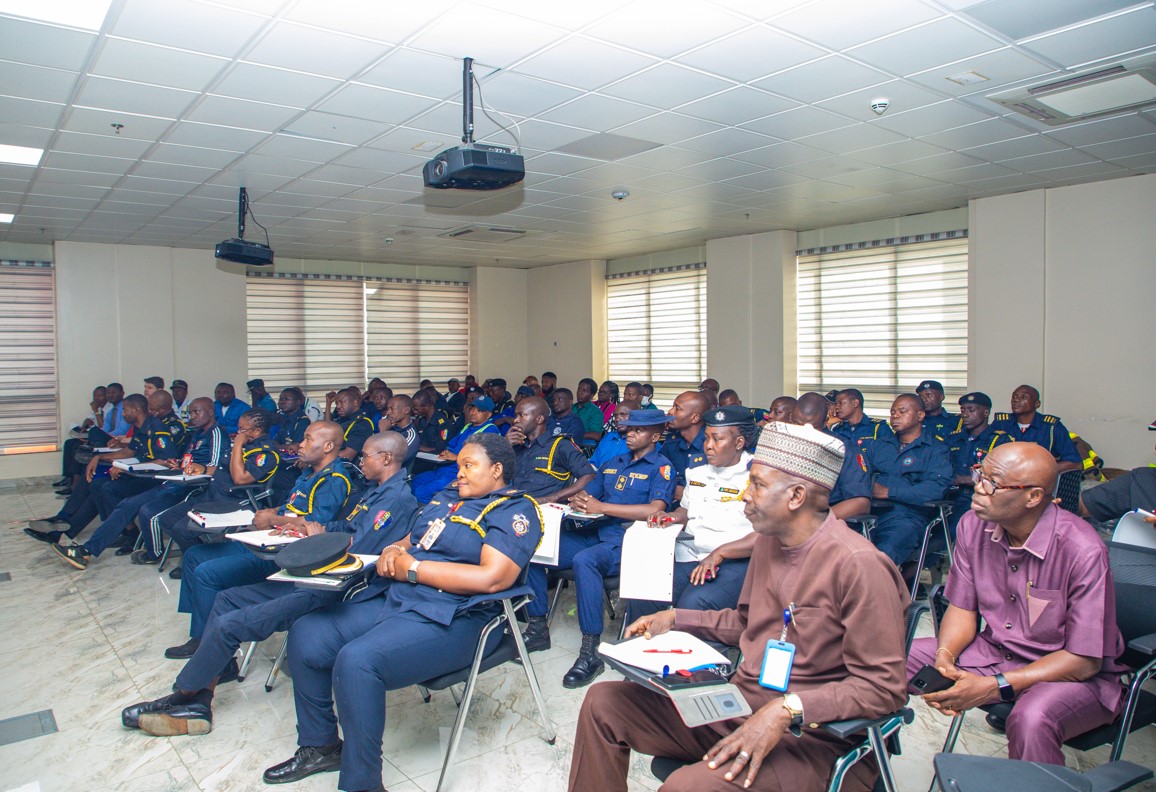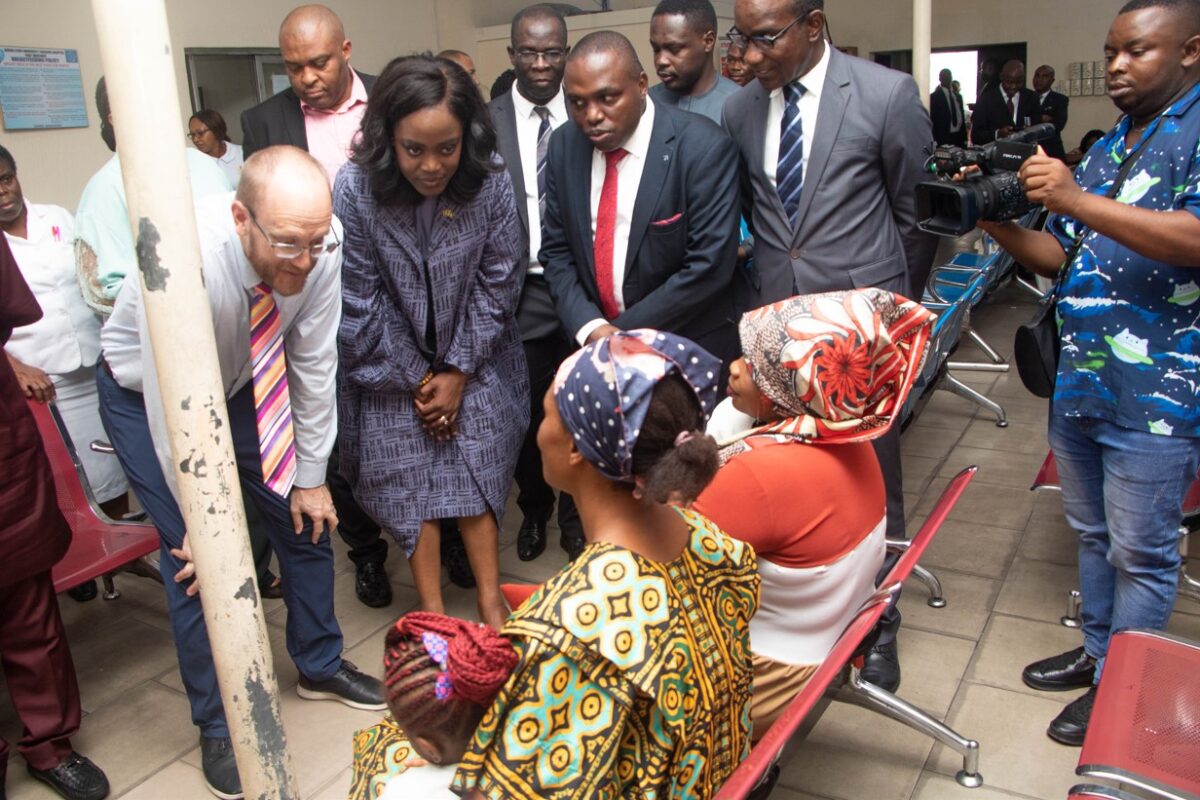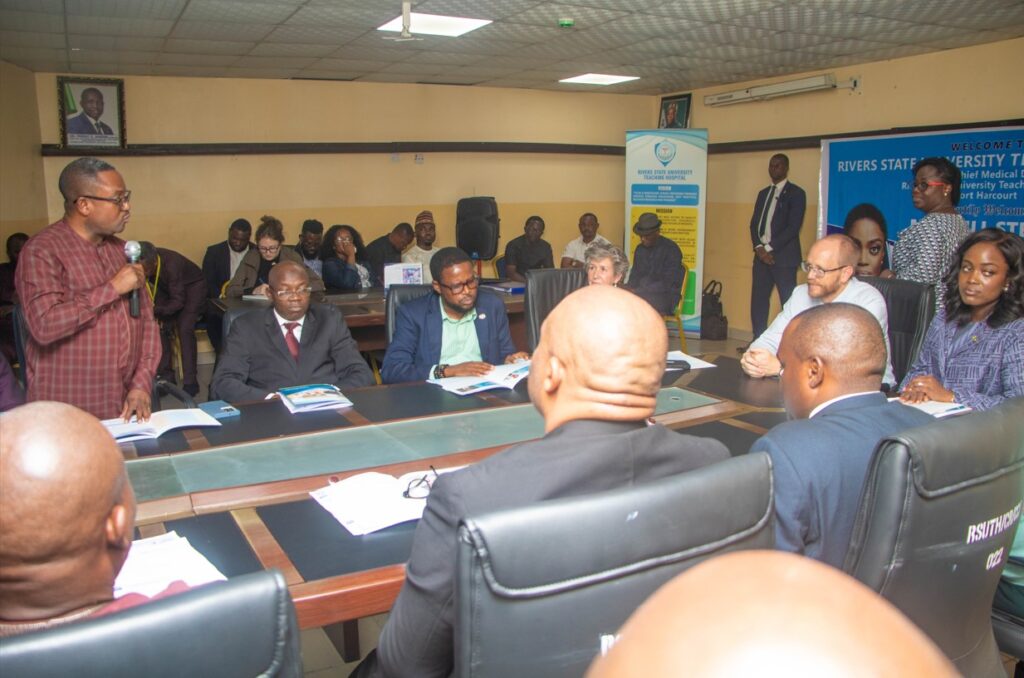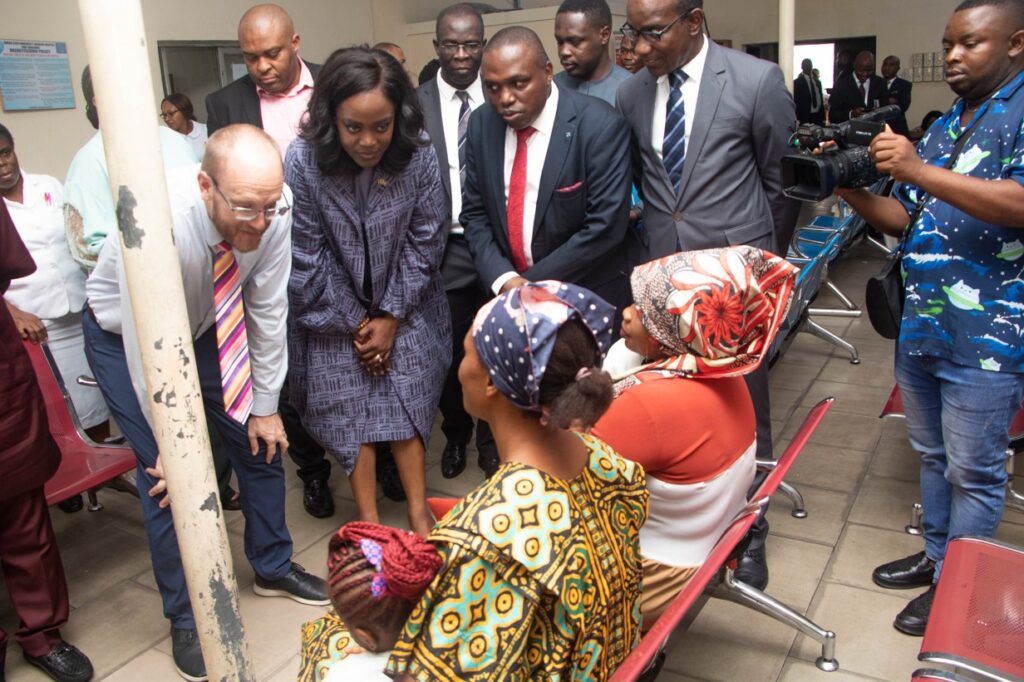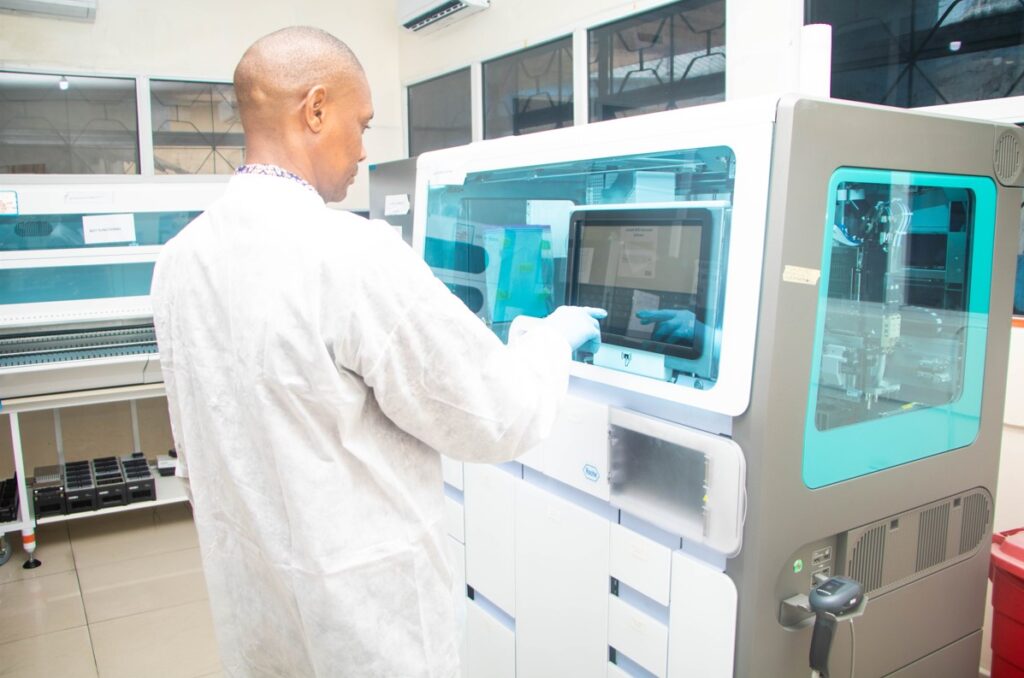The Institute of Human Virology Nigeria (IHVN) has collaborated with Africa Fire Mission (AFM) and Federal Capital Territory (FCT) Fire Service to train firefighters from Baze University, National Judicial Institute (NJI), Nile University and National Open University Nigeria (NOUN) on fire safety.
More than 25 Safety and Security Officers representing the organizations participated in the four-day training on “Advancing Firefighting Operations, Tactics and Leadership” held in the IHVN Campus in Abuja.
IHVN Chief Operating Officer and Managing Director, Dr. Charles Olalekan Mensah who welcomed participants to the training said that partnership with the Fire Service and organizations located in the IHVN Campus environs is important to forestall fire incidences in the vicinity.
AFM facilitated the training and conducted a needs assessment to identify tools and equipment needed to further develop FCT Fire Service. AFM also donated firefighting equipment like firefighting coats, boots, gloves, suspenders and helmets to them for enhanced effectiveness in responding to fire incidents, saving lives, property, and critical infrastructure.
AFM Co-Founder and Executive Director, Nancy Moore, said that “the hands-on training was focused on preparedness for IHVN’s partners in the Committee of Stakeholders on general safety and security of Cadastral Zone C00 Abuja FCT.”
Head of Operations, FCT Fire Service, Engr. Adesina Abioye, stated that the training has updated Fire Service Staff with modern professional ways of rescue and firefighting, and served as a refresher course on fire prevention and administration for the Senior Staff who participated. “The importance of the partnership cannot be overemphasized; it has brought tremendous benefits to the partners and the stakeholders community. What would have cost the FCT administration a huge sum of money was made available at no cost due to partnership,” he said.
